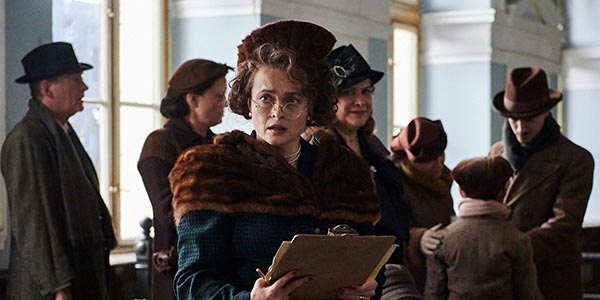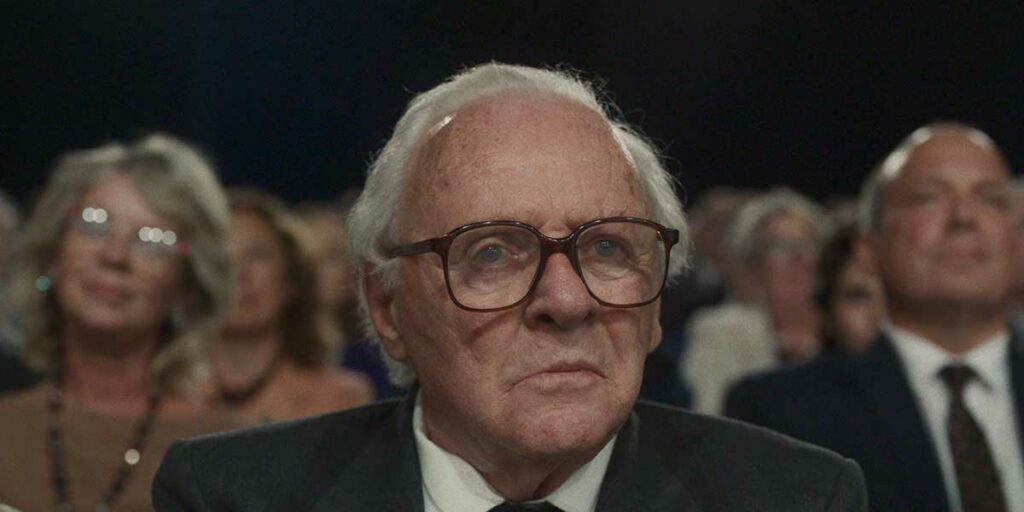As emotional as it is flawed, One Life tells a moving story of a historical moment that changed the lives of many.
It feels weird to write about One Life, a film on the Holocaust, today, when the mass killing of innocent people is happening before our eyes in Gaza and Israel. It is one of those cases when art truly imitates life, perhaps inadvertently, as the historical events the characters live through resemble those we are currently seeing reported on media outlets today. Then and now, the world seems to look at this crisis and wonder what we can do. Ultimately this is what One Life is about: saving innocent people because, as Nobel Peace Prize winner Malala Yousafzai recently said, “war never spares children.”
Based on a real story and inspired by the book “If It’s Not Impossible… The Life of Sir Nicholas Winton” by Barbara Winton, One Life is a biographical drama about Nicholas Winton, a British stockbroker who helped rescue Jewish children during the Holocaust. In the film, an elderly Nicholas Winton (Anthony Hopkins) looks back at his rescue mission as its historical impact becomes known to the public eye. Therefore, the movie promptly takes us back to 1938, when a young Nicholas (Johnny Flynn) travels to Prague and puts together a plan to help rescue Jewish children, with the help of his mother Babi Winton (Helena Bonham Carter), Doreen Warriner (Romola Garai), Trevor Chadwick (Alex Sharp), and Esther Rantzen (Samantha Spiro).
Sometimes there are performances so powerful that they seem to break the screen and speak directly to us: Anthony Hopkins is able to do that here, adding another level to the emotional tone of the film. He is once again magnificent as Nicholas in One Life. Although much of the film is focused on telling Nicholas’ life through flashbacks, Hopkins makes the character even more interesting in the present timeline with his flawless and moving performance. Similarly, it is hard to take your eyes off the screen when Helena Bonham Carter appears as she adds even more depth to the story with her character.
Although the film is predominantly focused on the protagonist, the children are a constant presence in One Life, even when they are not on screen. The photos and the documents with all their names appear frequently during the movie, both in the past as they escape Prague and in the present as Nicholas goes through his scrapbook. This is even more significant at the end when we see the pictures of the real people behind this incredible story. It also proves that in a way, as Nicholas himself says during the movie, it was never about him personally but about them.

One Life is truly at its best when it shows the repercussions of Hitler’s invasion of Poland, an event most of us only know from history books, on ordinary lives. As the movie’s plot line becomes one with history, the pace becomes quicker as its characters are in immediate and constant danger. The final part of the movie is the most impactful one as both the audience and Nicholas get to see the impact that he has had in so many lives. Throughout the film, it may be hard to visualise and conceptualise the fact that this operation was successful in saving 669 children from deportation but in the third act, the reality and scope of what Nicholas was able to achieve feels monumental.
It is a message of hope for humankind in a time when we so desperately need it, reminding us of the power of individual action and compassion when all seems lost. It is a film that reminds us of an important lesson the contemporary world seems to have forgotten. If the past is meant to teach us, then One Life is reminding us that we have not learned enough as it shows the need to save this children because the lives of refugees matter, whether they are victims of the Holocaust, crossing the Mediterranean Sea to seek asylum, or fleeing the war in Ukraine.
However, I felt like One Life was trying to make a connection with our contemporary reality a little bit too much, when it seems to me that the audience is perfectly capable of drawing this parallelism themselves without having it spoon-fed to them. For example, the film insists on calling the children refugees during its entire duration. While this is not untrue, it feels like an erasure of their identities as Jews which is often dismissed throughout the movie, focusing on the fact that multiple minorities were persecuted during the Second World War.
And while it is true that not all of the children Nicholas saved were Jewish, we cannot forget that the Holocaust was a genocide whose perpetrators systematically murdered six million Jews across Europe. The racial motivations and roots of the genocide and the ethnoreligious identity of its victims cannot be erased nor forgotten as they are the very reason why such horrors happened in the first place. While the attempt to relate this story to contemporary issues by focusing on their status as refugees is admirable, it seems too simplistic and even unnecessary.
The movie is still a beautiful and moving product: I left the cinema after seeing One Life in tears. The film depicts its story with the tenderness and respect, as the violence and horror of the Holocaust are only spoken about but never shown. Nonetheless, it remains incredibly impactful as we witness how one single person can alter the fate of many for the best. The film introduces us to heroic humanitarians and their powerful story that some may not be familiar with, one of the real people who worked day and night to save children at a great personal cost not because they had to but because they knew it was the right thing to do.
One Life was screened at the 2023 BFI London Film Festival. The film will be released in the UK & Ireland by Warner Bros. Pictures on January 1, 2024 and in US theaters by Bleecker Street on March 15.

